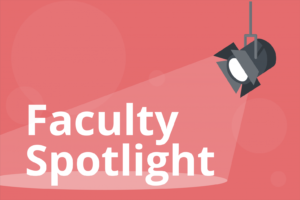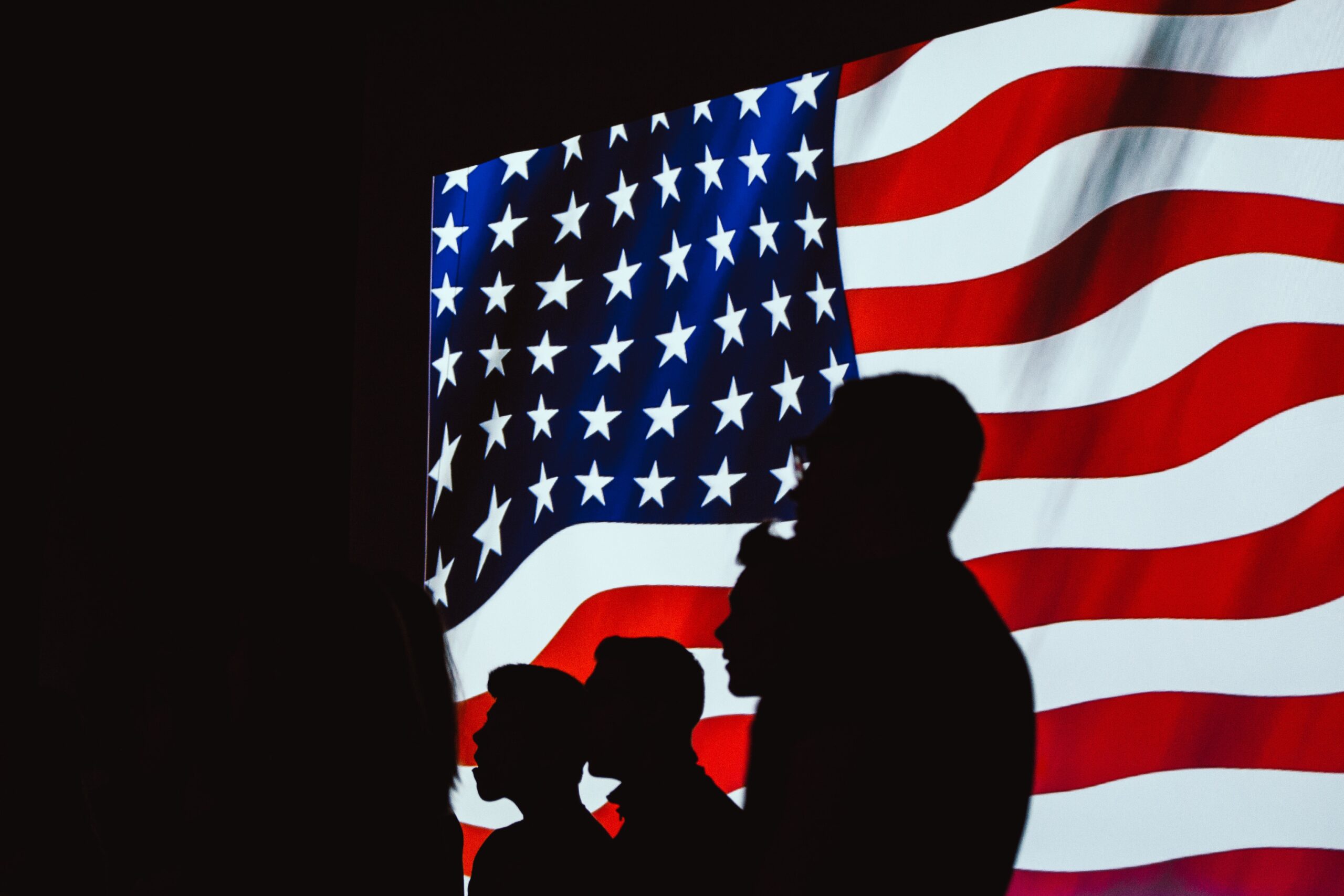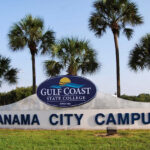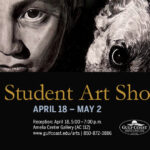
Professor Spotlight
Brian Baillif
Brian is the Assistant Professor of Theater and Entertainment at Gulf Coast State College. He went to school in Alabama.
Brian pursued his undergrad at Auburn University, receiving his B.S. in Environmental Design. He received a Master’s degree in Library and Information Science at the University of Alabama. And followed that with a Master’s of Fine Arts in Scenic Design and Technical Production. Brian has mostly stayed in the Alabama and Georgia area but most recently he was living in Albuquerque and Texas.
Professional Background.
After school, what was your experience in the industry?
“So even during school in the entertainment business you tend to work summer stocks professionally. I did that while I was in there and built up a good Summer Stock career getting a lot of shows in. Immediately, after grad school I spent one year filling in a teaching position at the Gainesville Theater Alliance as their Shop Foreman and Assistant Technical Director. That was for Brenau University, Gainesville State College and then a conglomeration in Atlanta.
That was a lot of fun and instructive but I really wanted to get out of education and go spend some time professionally…
I got a [job] as a resident Scenic Designer position at MCT in Midland, Texas. That was one of my 10 years out plans, to get a resident position as an artist, because there’s not many of them left in the country. I moved to Midland, Texas which is the middle of the desert but they have a phenomenally well supported, amazing theater…All of their designers had MFA’s(Master of Fine Arts), but it’s only the actors that are community members. It is a tremendously well supported [and] it’s a huge part of that community…
That was a very unique experience. It’s in the middle of the desert…So there’s nothing for basically 4 hours anywhere you go, other than Lubbock, which is 2 hours away. There’s nothing to do there except for Friday Night Football. It’s actually the place they wrote Friday Night Lights about and then you have the theater and so it’s the thing to do. [It was] a really phenomenal experience.”
Growing up, was Theater something you always wanted to go into?
“Growing up, I had no idea that you can make a living doing what I’m doing now. I knew I wanted to teach at some point…I decided [that] when I was in tenth grade. I took a [class] at a local College when I was still in High School. It was a chemistry course, which I didn’t do that well in and it really taught me I didn’t want to be a chemist…
What I [learned] and took away from was [that] it would be an amazing thing to be that Professor. [The one] who gets to spend his whole day doing what he loves and sharing that with people. I knew I wanted to teach I just hadn’t figured out where I would end up. In the professional world it took me and really expanded where I originally started, which was a Senior Designer and Scenic Painter and I did some Technical Direction which is three separate concentrations.
The more I worked professionally I started realizing where the industry used to be focused on specializations, the trend was going towards generalist and that you needed to be a jack-of-all-trades. [So] rather than keeping my field narrow, I started to take on lighting design, sound design to broaden that scope…
…that really, really helped slingshot my career professionally. I did start [about] 2008, which was right during the recession, where no jobs were to be had. I think that’s what kind of took me into the broadening path. That trend [in general] has continued to some degree. Technology is bringing all the fields closer together.
Ultimately, it was my experience in the professional world that led me to design the program here for entertainment technology, where you are a generalist and you learn a little bit about everything so that you can find your market and adapt to it.”
Has anyone influenced you the most in your life?
“When I was at Auburn, I was in the Architectural Program and [it was] Samuel Mockbee, who was the founder of the Rural Studio program. He passed away while I was still at Auburn and in fact, that’s a part of the reason [why] I didn’t go into architecture. It crushed me. He was my hero, I really got along with him. I got to spend some time with him outside of the classroom.
He was a big element in me wanting to be a designer, and really starting to understand what designers do, [which is] the bridge between art and functionality…
When I was at Alabama, I got to work with John Iacovelli, [and] I was his on-site assistant…You might not know his name because he’s a designer but he was the artistic director for Honey, I shrunk the Kids, [and has worked on sets] for Battle star Galactica the series. He’s one of the top designers for the country…he does Broadway, and Hollywood.
I was actually petrified to meet the guy. You hear so much about the negatives in the industry and people with big egos. To meet somebody when I was that young, [and] who was just so far elevated. He was the nicest man I’ve ever met, was very happy to help, progressed my career, and gave me advice. I don’t even know if he remember my name but I will always remember him.”
Do you think you took your experiences from him and tried to give that to your students?
“I think that was a lot of it…It’s a very small industry and the people who have the wrong attitude and are not open and, and not helpful to others…They filter themselves out of work. The theater in particular is a collaborative art. It’s never about one person’s vision.
He really helped me see that by just being giving and not trying to take any acclaim for yourself, but [doing] the best you could for a project, that you really elevated everyone else around you. You did so much better work because it wasn’t about my ego or your ego. It was about lets do the best we can with the school project.”
Life at Gulf Coast State College.
What is the best part about being a GCSC faculty member?
“The best part is our community. It’s rare to find the amount of cooperation and interactivity across campus that we have here. Our size is a boon to us, and that we all as faculty know each other.
One thing I was really disappointed with at the University level was that you would have the Art Department sitting right next to the Theater Department and we’re both working on sculptures. But the art wouldn’t touch the theater ones, the theater people wouldn’t help out with art people and we would fight over spaces in classrooms and materials and there’s all this competition just between departments.
That’s one of those things that Universities are known for, in that they are very territorial and they don’t intermingle a lot. Here at Gulf Coast, we try very hard to be cooperative and to treat everyone as though they are apart of a family. It’s very inspiring to work in an environment where you get to give people second chances educationally…”
What is your favorite part of your job?
“I think my favorite part is when you watch a student struggling with a concept and then all of a sudden there’s this ‘Aha! Light bulb’ goes off. That look of just ‘Oh my god, I get it’. That’s the epiphany moment, and watching that happen, and seeing it just click…from that moment on they just seem to have everything fall into place.
I love seeing those big hurdles of trying to think about something in a different way, when that barrier crashes down, and someone just skyrockets passed. That’s awesome. It’s so fun to see.”
What is the most challenging part of your job?
“That’s a hard one. I never have a good answer for that. The most challenging part is always whatever you’re currently stuck on with any project. With the position in general, sometimes we’re doing the same thing over and over and over. I did Romeo and Julie five times in three years. I never want to do that show again in my life.
…sometimes we get bogged down and it seems like we’re doing the same shows over and over and you just want to try a different venue. From the job point of view, is just getting inspired in trying to find a new creative way to do something you’ve already done.
I think that’s easier to overcome in the classroom because I always have fresh new students coming in and I’m always trying to adapt from the lessons I learned last semester teaching a course to make it easier.
Keeping things fresh sometimes and trying to see things from a different can be challenging. Especially when trying to find the holes in someone’s education and figure out why something’s not clicking because I know what I’m teaching., anyone can learn it. I [just] don’t always know the right way to make those connections.”
Throughout your years of teaching, what is your best experience you’ve ever had?
“It happens every year and it’s graduation. When you see someone walk across the stage. I love it. I’ve loved seeing my students walk across the stage. A lot of them don’t want to go to graduation and I do everything I can to tell them they’re not doing it for themselves, but I want to see them.”
Advice for Students.
Do you have any advice for perspective students coming in?
“Learn time management, 100%. Learn how to use your Outlook calendar. I think that’s the biggest transition particularly if you are first time in college. All of a sudden the reins are let loose a lot more and there’s not as much direct guidance as far as scheduling goes. The thing I see most is people not utilizing their time wisely…
…It’s not like I was great at it when I was in college, but this is probably the easiest time to organize your life from this point out and it’s only going to get more complicated [when] more things will be added on. Learning how to stay organized and stay on top of things and in to not procrastinate is one of the best lessons you can get out of college.”
ABOUT THE AUTHOR
Dana Robertson
Student Author - Fall 2019








